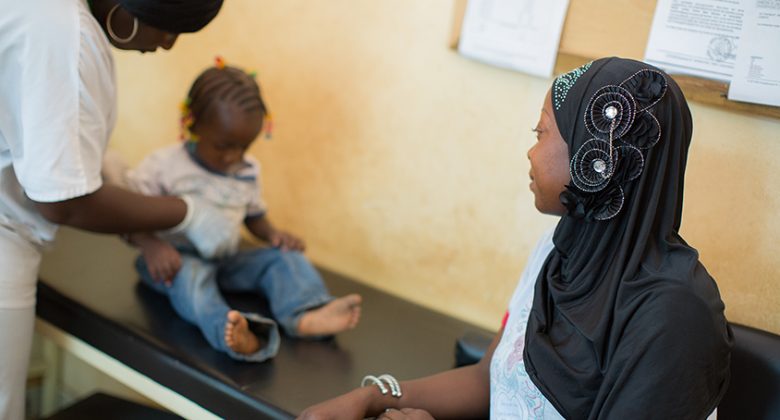KALUMA trial confirms safety and efficacy of next-generation malaria therapy

Novartis and the WANECAM-2 consortium announced that the KALUMA phase III trial has demonstrated GanLum (KLU156, ganaplacide/lumefantrine or GanLum) as a safe and effective treatment for uncomplicated malaria. The KALUMA trial, coordinated by the WANECAM-2 project and funded by the EDCTP2 programme, represents the first potential advance in malaria treatment in 25 years.
The study enrolled 1,688 adults and children with acute, uncomplicated malaria, across 34 sites in 12 African countries (Burkina Faso, Democratic Republic of Congo, Cote d’Ivoire, Gabon, Ghana, Kenya, Mali, Niger, Nigeria, Rwanda, Tanzania, Uganda). GanLum — a once-daily, three-day course of granules combining the novel compound ganaplacide and a new formulation of lumefantrine — was tested against the current standard of care, Coartem® (artemether-lumefantrine). The study met its primary endpoint, demonstrating non-inferiority to the current gold-standard treatment. Under the conservative estimand framework, GanLum achieved a 97.4% PCR-corrected cure rate, compared to 94.0% for Coartem; conventional per protocol analysis showed cure rates of 99.2% and 96.7%, respectively.
Additional analyses revealed GanLum’s rapid action against mature gametocytes, responsible for malaria transmission, and efficacy against strains showing signs of drug resistance. The findings, presented at the American Society of Tropical Medicine and Hygiene (ASTMH) annual meeting 2025, reflect the urgent need for novel malaria therapies as antimalarial resistance spreads across sub-Saharan Africa.
“GanLum represents one of the most significant advances in malaria treatment in decades — combining strong efficacy against multiple parasite strains with the potential to overcome emerging drug resistance. This achievement reflects the power of African scientific leadership working in partnership with global innovators and the vital support of the EDCTP and its European and African partners, whose sustained investment in collaborative research is helping Africa lead the fight against malaria and drug resistance.”
Prof. Abdoulaye Djimdé, Coordinator of the WANECAM-2 consortium and Director of the Parasites and Microbes Research and Training Center, University of Science, Techniques and Technologies of Bamako (USTTB), Mali
The KALUMA trial was supported by the EDCTP2 programme, with additional funding from the Deutsches Zentrum für Luft- und Raumfahrt (DLR) and the UK Department for Health and Social Care (UK-DHSC). Novartis developed the GanLum drug with scientific and financial support from Medicines for Malaria Venture (MMV).
“By supporting the WANECAM-2 consortium, EDCTP helped strengthen the scientific and clinical infrastructure needed to deliver trials of this scale and impact. The success of GanLum demonstrates the vital importance of sustained investment in collaborative research to defeat malaria and emerging drug resistance. This achievement highlights how African research leadership, working hand in hand with global innovators, can drive transformative progress.”
Dr Montserrat Blázquez-Domingo, Senior Project Officer at EDCTP Association
GanLum harnesses ganaplacide — a new class of molecules called imidazolopiperazines discovered by Novartis through high-throughput screening of 2.3 million compounds— with the well-established drug lumefantrine. This dual-action formulation, delivered in a simplified once-daily dose for a course of three days, addresses both drug-resistant parasites and ensures optimal patient adherence.
Novartis is seeking regulatory approval for GanLum following its Fast Track and Orphan Drug designations by the U.S. Food and Drug Administration.
About the WANECAM-2 consortium
The West African Network for Clinical Trials of Antimalarial Drugs (WANECAM-2) is a multi-country African clinical consortium dedicated to combating malaria through regional training and cutting-edge research. This EDCTP2-supported network is led and coordinated by Professor Abdoulaye Djimdé of the Université des Sciences, des Techniques et des Technologies de Bamako (USTTB), Bamako, Mali, with partners from Burkina Faso, France, Gabon, Germany, the Netherlands, Niger, Sweden, Switzerland, and the United Kingdom. It is a unique collaboration of ten academic institutions, in collaboration with a pharmaceutical company, Novartis AG, and a not-for-profit product development partnership (PDP), Medicines for Malaria Venture (MMV). EDCTP2 has invested nearly €12 million in the project, including funding from the Deutsches Zentrum für Luft- und Raumfahrt e. V. (DLR) and the UK Department for Health and Social Care (UK DHSC).
The KALUMA (NCT05842954) phase III trial is a testament to African leadership in innovation, evaluating GanLum in diverse communities where the malaria burden is highest.
More information
- Novartis Phase III trial for next-generation malaria treatment KLU156 (GanLum) meets primary endpoint, with potential to combat antimalarial resistance
- Winnips, C., et al. KALUMA – A pivotal Phase III trial to evaluate the efficacy, safety and tolerability of the novel anti-malarial drug ganaplacide-lumefantrine (KLU156) in uncomplicated malaria, Presented at Annual Meeting of the American Society of Tropical Medicine and Hygiene, 12 November 2025
